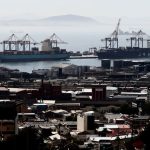Home » Global Business Landscape » The Interplay of Socio-Political Factors and Economic Relations: Unraveling Influences, Challenges, and Strategies
The Interplay of Socio-Political Factors and Economic Relations: Unraveling Influences, Challenges, and Strategies

The intricate dance between socio-political factors and economic relations forms a cornerstone of global dynamics. Political stability, governance structures, and regional conflicts influence economic ties, shaping trade, investments, and collaborations among nations. This article delves into the impactful relationship between socio-political factors and economic relationships, specifically focusing on Africa. It explores the profound influence of stability, governance, and conflicts on economic partnerships, offering insights into mitigating challenges for enhanced collaboration.
Impact of Political Stability and Governance on Economic Ties
Political stability and effective governance are linchpins for fostering conducive economic growth and collaboration environments. Stable political landscapes breed investor confidence, encourage long-term investments, and pave the way for robust economic partnerships. Conversely, political volatility and governance deficiencies hinder economic progress, deterring foreign investments and disrupting trade relationships.
Regional Conflicts and their Ripple Effects on Economic Relations
The prevalence of regional conflicts within Africa has a direct and often detrimental impact on economic ties. Conflict disrupts trade routes, damages infrastructure, and breeds uncertainty, causing economic setbacks for the nations involved. Additionally, the refugee crises resulting from conflicts strain resources and impede economic development, further complicating regional economic collaborations.

Examples of Socio-Political Factors Influencing Economic Relations in Africa
Historically, socio-political factors have significantly influenced economic ties within Africa. For instance, Rwanda and Botswana’s stability and governance reforms have attracted investments, fostering economic growth. Conversely, conflicts in regions like the Democratic Republic of Congo have disrupted trade and investment, stifling economic progress.
Strategies to Mitigate Socio-Political Challenges for Enhanced Economic Collaboration
- Strengthening Governance: Implementing transparent and accountable governance structures fosters an environment conducive to economic collaborations and foreign investments.
- Conflict Resolution Mechanisms: Investing in conflict resolution and peace-building initiatives helps mitigate conflicts that hinder economic growth.
- Regional Integration and Cooperation: Encouraging regional integration through trade agreements and collaborations enhances economic resilience and stability.
Socio-political factors wield immense power in shaping economic relations, particularly within the African context. As nations navigate the complexities of governance, stability, and conflicts, the need for proactive strategies to mitigate challenges becomes paramount. By fostering stability, strengthening governance structures, resolving conflicts, and promoting regional cooperation, African nations can forge a path towards enhanced economic collaboration, fostering growth, prosperity, and sustainable development across the continent.
About
Discover the narratives that define the global economic stage. From diplomatic dialogues to trade partnerships, our blog unveils the stories behind economic development and international relations.































